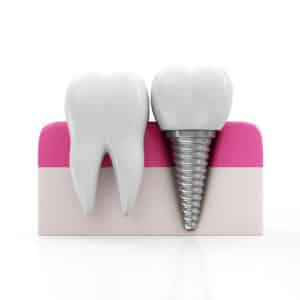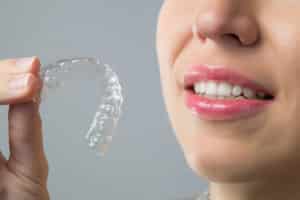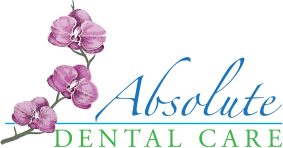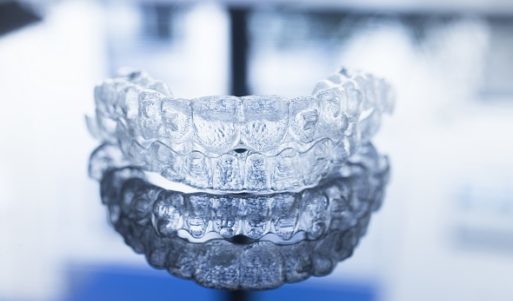 If you snore, then your sleeping partner might lose sleep regularly because of the noise, which can cause you to lose sleep if your partner jolts you awake to stop. However, there’s a more significant way in which snoring can seriously affect the quality of your sleep, especially if it indicates the presence of obstructive sleep apnea (OSA). Not everyone who snores suffers from OSA, but if you do, then your snoring can be causing you to periodically lose sleep without you realizing it. (more…)
If you snore, then your sleeping partner might lose sleep regularly because of the noise, which can cause you to lose sleep if your partner jolts you awake to stop. However, there’s a more significant way in which snoring can seriously affect the quality of your sleep, especially if it indicates the presence of obstructive sleep apnea (OSA). Not everyone who snores suffers from OSA, but if you do, then your snoring can be causing you to periodically lose sleep without you realizing it. (more…)
3 Signs that You Might Have TMJ Disorder
 The way your jaw moves depends on a number of things, from the shape of your jawbone to the alignment of your teeth. Two of the most significant factors in your jaw’s movement, however, are the joints that connect your mandible to your skull, known as temporomandibular joints (or TMJs). Moving in tandem, your TMJs glide and pivot as your jaw opens, closes, and moves around as needed.
The way your jaw moves depends on a number of things, from the shape of your jawbone to the alignment of your teeth. Two of the most significant factors in your jaw’s movement, however, are the joints that connect your mandible to your skull, known as temporomandibular joints (or TMJs). Moving in tandem, your TMJs glide and pivot as your jaw opens, closes, and moves around as needed.
When they’re damaged, distressed, inflamed, or otherwise compromised, TMJs can make jaw movement difficult and painful, and the discomfort will grow worse until your bite’s balance is restored. Besides jaw pain, there are a few other signs that could warn you that you might TMJ disorder and should seek a professional opinion from your dentist as soon as possible. (more…)
What’s the Best Way to Prevent Cavities?
 You’ve likely heard of them, and since they affect over 90% of adults, you may already have one. If so, then you might wonder if preventing cavities is possible to avoid having to deal with another one. The truth is that despite their widespread occurrence, the best way to prevent cavities is through regular dental visits and excellent dental hygiene at home. If you do develop a cavity, the seek treatment as soon as possible to minimize the damage it causes to your tooth. (more…)
You’ve likely heard of them, and since they affect over 90% of adults, you may already have one. If so, then you might wonder if preventing cavities is possible to avoid having to deal with another one. The truth is that despite their widespread occurrence, the best way to prevent cavities is through regular dental visits and excellent dental hygiene at home. If you do develop a cavity, the seek treatment as soon as possible to minimize the damage it causes to your tooth. (more…)
What Does Bruxism Mean?
 Cavities and gum disease are common dental terms, and most people understand what they mean, but dental health issues don’t always fall into those categories. Bruxism, for instance, is a common problem that many patients don’t realize they have until symptoms become prominent. The clinical name for unconscious teeth-grinding, bruxism describes the persistent, uncontrollable tendency to clench and grind teeth, and it often occurs while a patient is sleeping. If you suffer from bruxism, then your dentist can tell by inspecting your teeth for signs of excessive wear and damage. (more…)
Cavities and gum disease are common dental terms, and most people understand what they mean, but dental health issues don’t always fall into those categories. Bruxism, for instance, is a common problem that many patients don’t realize they have until symptoms become prominent. The clinical name for unconscious teeth-grinding, bruxism describes the persistent, uncontrollable tendency to clench and grind teeth, and it often occurs while a patient is sleeping. If you suffer from bruxism, then your dentist can tell by inspecting your teeth for signs of excessive wear and damage. (more…)
3 Things to Know About Checkups & Cleanings
 Checkups and cleanings are the most well-known reason to visit the dentist. They’re also the most important, since your regular visits are necessary to keep your teeth and gums clean, healthy, and free of disease. Still, checkup and cleaning appointments don’t always seem so important, and many patients postpone or simply ignore theirs. It should be no surprise, then, that the large majority of adults have dental health issues, especially cavities, that could have been prevented. (more…)
Checkups and cleanings are the most well-known reason to visit the dentist. They’re also the most important, since your regular visits are necessary to keep your teeth and gums clean, healthy, and free of disease. Still, checkup and cleaning appointments don’t always seem so important, and many patients postpone or simply ignore theirs. It should be no surprise, then, that the large majority of adults have dental health issues, especially cavities, that could have been prevented. (more…)
Should You Consider Dental Implants?
 Losing teeth can have serious consequences for the health and appearance of your smile. In order to avoid these potential complications you should seek tooth replacement. We can help you enjoy a healthy and whole smile dental implants. Should you consider dental implants?
Losing teeth can have serious consequences for the health and appearance of your smile. In order to avoid these potential complications you should seek tooth replacement. We can help you enjoy a healthy and whole smile dental implants. Should you consider dental implants?
Do You Have Difficulty Sleeping?
 If you often feel exhausted or have trouble sleeping, then you may suffer from a serious disorder known as obstructive sleep apnea. Without treatment, sleep apnea can increase the risk of serious complications, such as high blood pressure, stroke, and heart attack. If you have difficulty sleeping then you may need treatment.
If you often feel exhausted or have trouble sleeping, then you may suffer from a serious disorder known as obstructive sleep apnea. Without treatment, sleep apnea can increase the risk of serious complications, such as high blood pressure, stroke, and heart attack. If you have difficulty sleeping then you may need treatment.
About Invisalign®
 Do you have an uneven smile? If you have issues with the alignment of your smile, then you probably assume braces are your only option. However, we can provide clear smile correct with Invisalign. How does Invisalign work?
Do you have an uneven smile? If you have issues with the alignment of your smile, then you probably assume braces are your only option. However, we can provide clear smile correct with Invisalign. How does Invisalign work?







